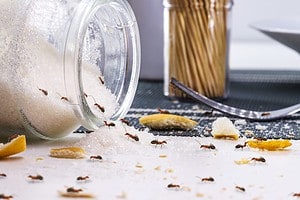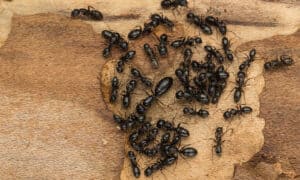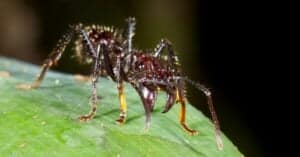The beginning of summer means warm days, gardening, and enjoying the sun. It also means the start of ant season, necessitating diligent cleaning to keep these industrious pests out of your home.
Unfortunately, even the best efforts to prevent ant infestations can have limited results. If ants decide to set up shop inside your walls, you’re in trouble.
In this article, we’ll cover five effective, natural ways to get rid of ants in your walls and reclaim your home.
Get Rid of Ants in Your Walls: Important Considerations
Before diving in, there are a few key things to keep in mind. First, there are different types of ants with varying patterns of behavior. These approaches work on standard black ants. If you have carpenter ants, you need to work with a specialist and use chemical treatment, as they can impact the structural integrity of your home.
Second, natural and effective doesn’t necessarily mean safe. Be mindful of harmful natural substances while handling them or if you have children or pets in your home.
Prevention is also important. Take the time to ensure cracks are properly sealed around your home, and avoid storing wood against exterior walls.
With those considerations in mind, let’s burrow in.
Baking Soda and Icing Sugar
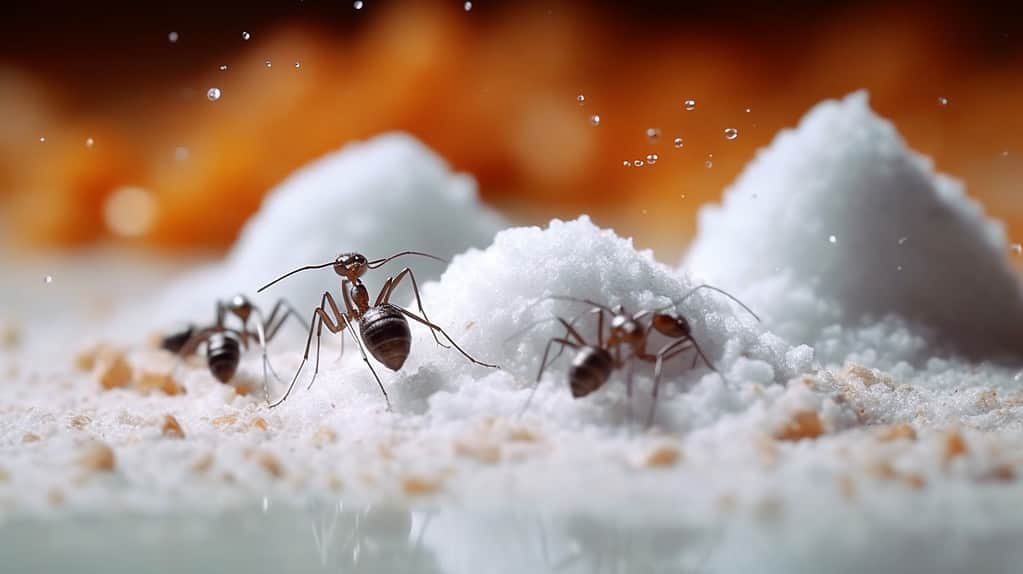
Baking soda will kill ants if ingested.
©A-Z-Animals.com/
When you want to create a natural, healthy home, nothing beats baking soda. It’s a powerful cleaner, a helpful baking ingredient, and toxic to ants. It’s one of the safest options on this list for homes with children and pets (though you should still take steps to limit access).
The problem is that ants know baking soda is bad for them and won’t take it. That’s where the icing (confectioner’s) sugar comes in.
Mix a 3:1 ratio of icing sugar to baking soda and shake in a container. Leave the mixture near the ants’ entry point for easy access. They’ll take it back to the colony, consume it, and die.
If you have pets or children, consider leaving the mixture in a sealed container with drilled holes along the sides. The holes will make it so the ants can enter yet keep the mixture safe from curious critters or children.
Sodium Borate and Icing Sugar
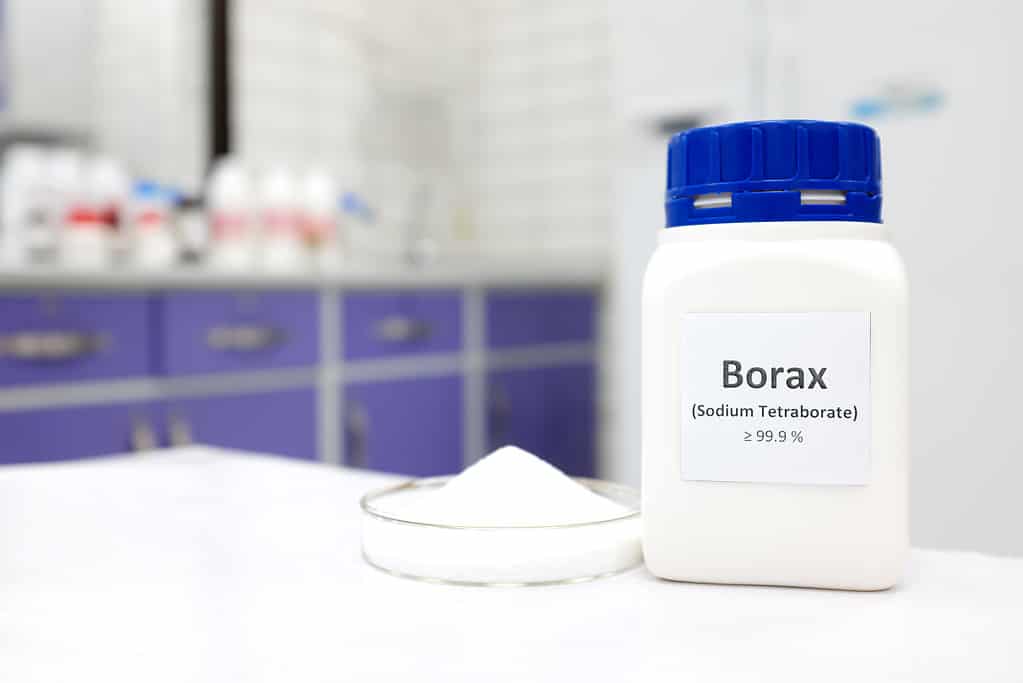
Sodium borate is sold as Borax and will kill ants.
©sulit.photos/Shutterstock.com
Sold under the popular brand Borax, sodium borate is a natural substance. However, it’s not as safe to use as some people believe. When ingested—either eaten or breathed in—this irritant can be harmful to animals and humans. However, it’s also incredibly effective against ants.
Mix a 3:1 ratio of icing sugar and sodium borate, placing it near the ants’ entry point to the wall. As with the baking soda, they’ll take it back to the colony as nourishment. Alternatively, you can mix the sodium borate with syrup, making it harder for the ants to detect.
Always wear a mask when mixing sodium borate and wash your hands thoroughly to avoid skin irritation. Store the mixture in a container with holes to protect your pets and children.
Diatomaceous Earth
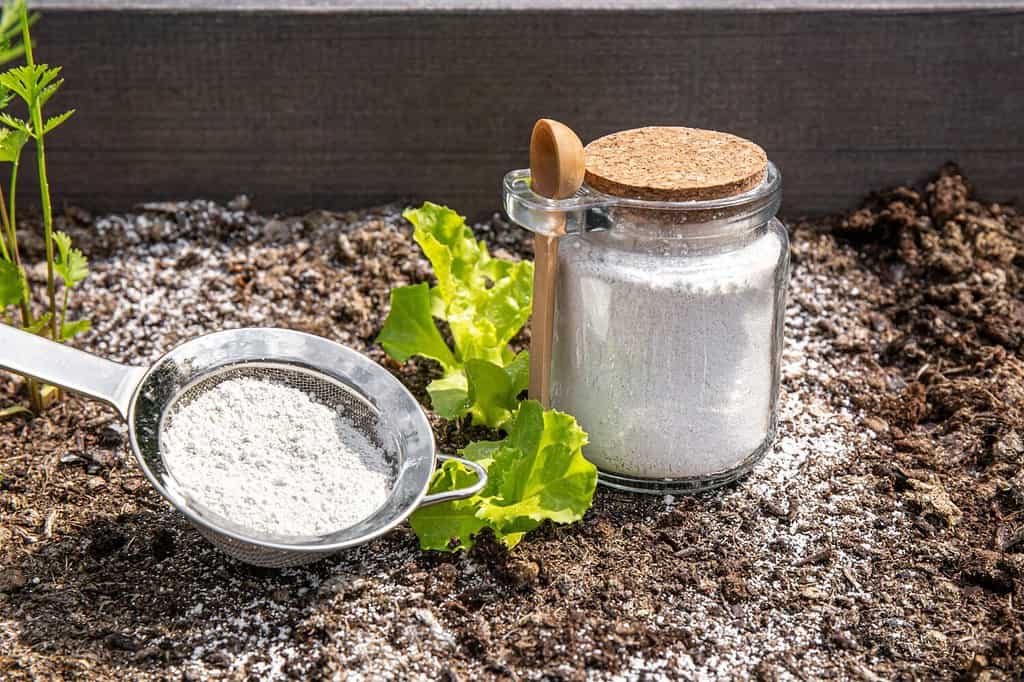
Crossing diatomaceous earth will destroy ants’ exoskeletons.
©FotoHelin/Shutterstock.com
Diatomaceous earth is a must-have for natural homes and gardening enthusiasts. This substance contains a blend of silica and fossilized organisms known as diatoms.
There’s a myth that diatomaceous earth kills ants when they ingest it. However, it’s unlikely that ants will ever try to take this back to their colony, as coming in contact with diatomaceous earth degrades their exoskeleton and eventually kills them. It’s often used as a deterrent for this purpose.
To effectively use diatomaceous earth to get rid of ants in your walls, you’ll need to find the nest, drill or cut into the wall, and apply a hefty dose on the nest. This will both smother the nest and prevent ants from leaving, harming those that try.
Be sure to wear safety goggles and a mask when applying diatomaceous earth, as it’s a respiratory irritant. Invest in food-grade diatomaceous earth if you live in a home with pets or children.
Boiling Water
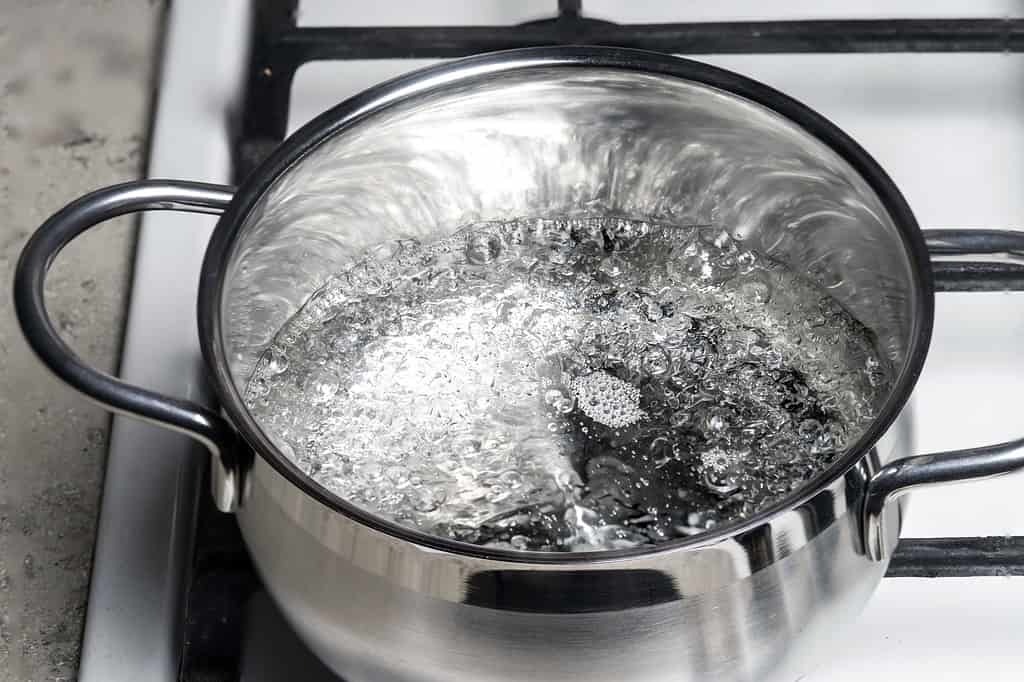
Boiling water will kill an ant colony.
©VladK213/iStock / Getty Images Plus via Getty Images
Pouring boiling water over the colony will help get rid of ants in your walls. This approach is more effective in this situation than when trying to eliminate a colony in the ground, as you will be able to impact the entire nest rather than just the surface level.
Unfortunately, you will have to open the wall to use this method and to ensure you get the entire nest. It’s also important to be mindful of electrical work and the structure of your home. Avoid using this method if the nest is located near wires or the water could run down the walls into other areas of your home (i.e., if you’re on a second story).
When in doubt, talk to a pest infestation expert and explore other options.
Dish Soap and Water
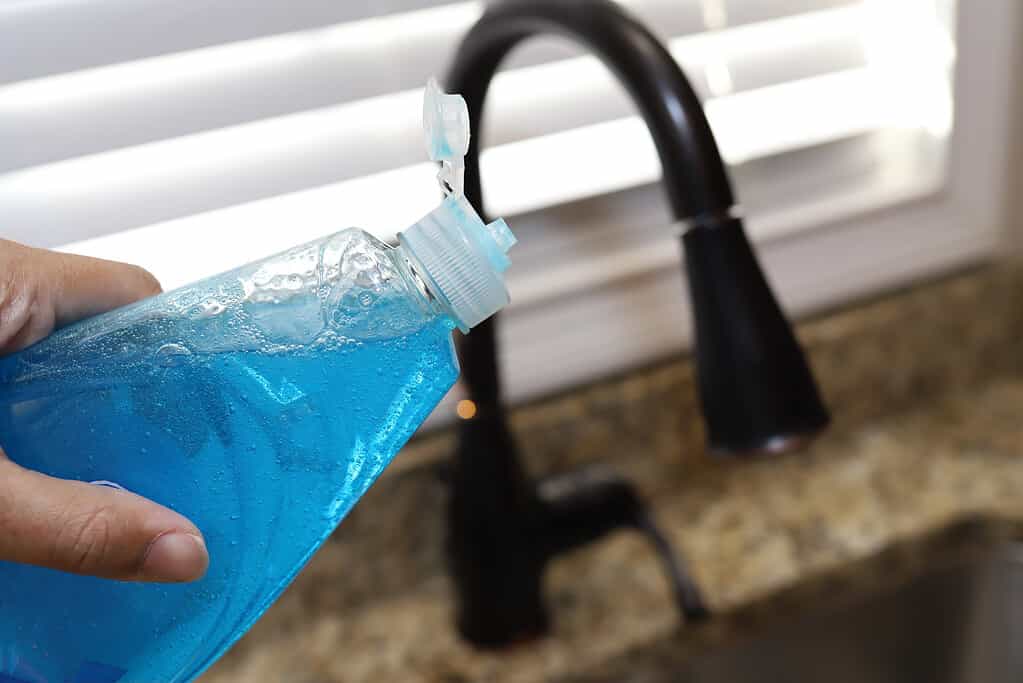
A bit of dish soap helps eliminate pheromone trails.
©Robin Gentry/iStock via Getty Images
Adding dish soap to hot water will also help eliminate ants and prevent them from coming back. Ants use pheromones to navigate and find their way home after scouting. Using dish soap will help eliminate the pheromone trails and wash away the nesting materials as you pour water over the nest. As you spray the ants, they will die from suffocation.
Again, the downside of this approach is that you’ll need to open your wall, and it’s not appropriate for some parts of the home. When in doubt, talk to a pest infestation expert and explore other options.
The photo featured at the top of this post is © IamBijayaKumar/Shutterstock.com
Thank you for reading! Have some feedback for us? Contact the AZ Animals editorial team.



